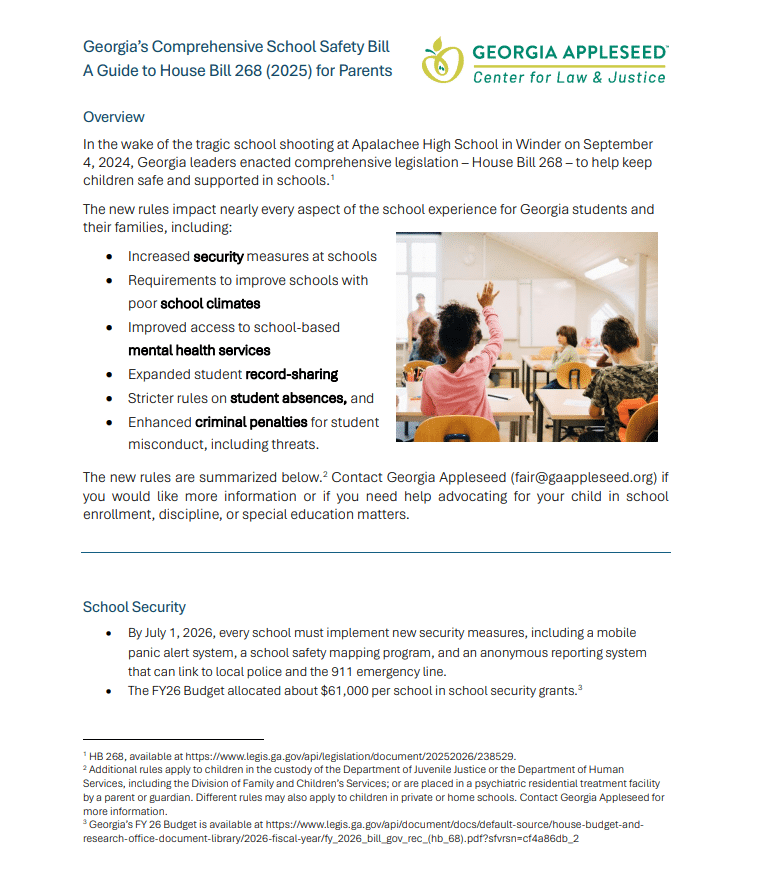School Safety Law – HB 268
Georgia House Bill 268: What Parents, Schools, and Communities Need to Know
On July 1, 2025, Georgia’s House Bill 268 – the Comprehensive School Safety & Student Well-being Act became law. This is one of the most wide-reaching school safety and student support laws in the country. It touches almost every part of school life — from security and discipline to attendance, behavioral health, and student records.
To help schools meet the new requirements, the FY2026 state budget includes major funding. Each school will get $61,000 for safety upgrades. The state also set aside $20 million for student behavioral health and $7 million to hire student advocacy specialists.
What HB 268 Does
Let’s break down the main changes.
Safety systems – Schools must install panic alert systems and create detailed school maps. They also need anonymous reporting tools that link directly to 911 and law enforcement.
Funding: $61,000 per school in safety grants.
School climate – Schools with low climate ratings (1–2 stars) must implement Positive Behavioral Interventions and Supports (PBIS) and Response to Intervention (RTI) programs. The goal is to improve discipline and create safer, more supportive learning environments.
Student supports – Middle and high schools must provide suicide and violence prevention training. They must also create student-led prevention clubs.
Funding: $20 million for behavioral health and $7 million for new student advocacy specialists.
Record sharing – When enrolling students in grades 4–12, parents must disclose any serious discipline or criminal history. Schools must transfer those records quickly and share them with teachers.
Attendance rules – If a student misses 30 days in a row without notice, schools must alert child welfare agencies. They can also ask law enforcement to conduct a wellness check.
Criminal penalties – Students as young as 13 can now face felony charges for terroristic threats or acts at school, on buses, or at school events.
Need Help?
HB 268 brings big changes — and many questions.
If you’re a parent, educator, or advocate trying to understand how this law affects your school or student, Georgia Appleseed can help. We can answer questions about enrollment, discipline, special education, and more.

